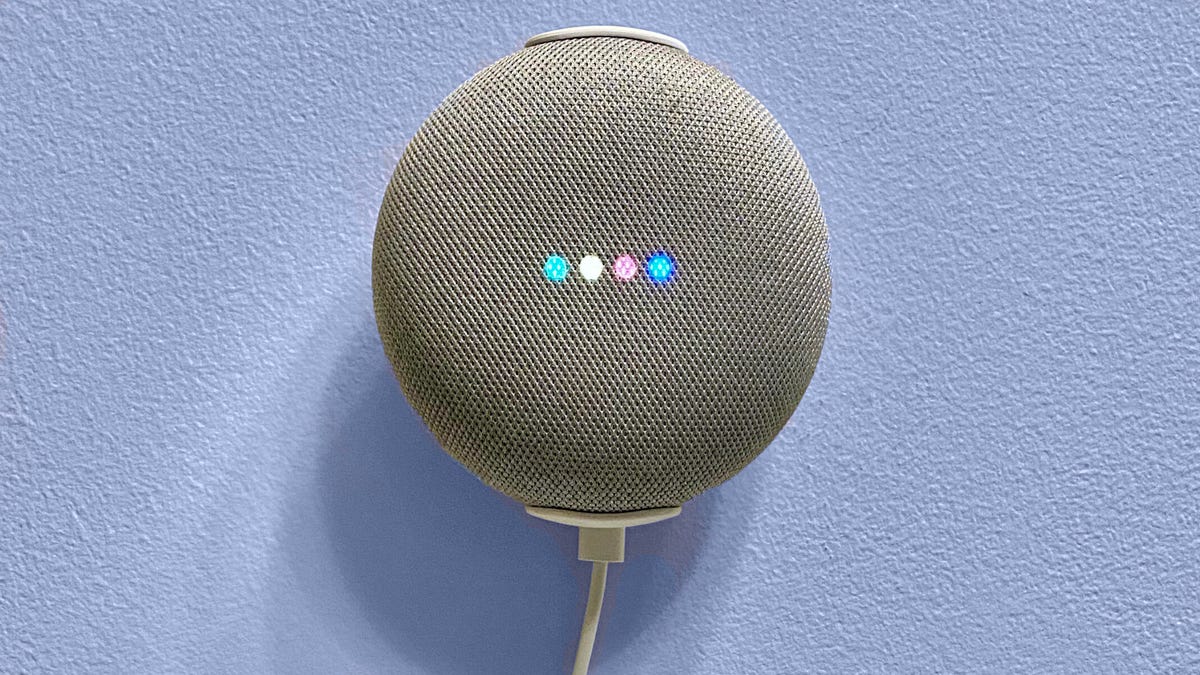Alexa bests Google Assistant, 3-0. How to fix Google Home's most annoying shortcomings
Google Home still has some catching up to do with three of my favorite Alexa features, but there are workarounds.

Google Home is great, but it's not perfect -- some tasks require a workaround.
As far as digital voice assistants go, I adore Google Home , I really do, but that doesn't mean our relationship is always coming up roses. You might even say the honeymoon phase is pretty much over at this point. I'm not saying we need relationship counseling just yet, but my list of pet peeves has grown frustratingly long. And worse, it's starting to come across in my attitude when I talk to Google Assistant . We just need to talk.
I know you can never expect anyone to change just for you, but that's one thing I love about Google Assistant -- Google is constantly evolving the technology. Maybe things will eventually get better.
Until then, here are my top three Google Home pet peeves what I do to work around them.
"Hey, Google" doesn't exactly roll off the tongue as easily as, say, "Alexa."
Hey, Boo Boo, can I get a different wake word?
The problem: "OK, Google " just feels awkward and clumsy to me, and "Hey, Google" is no better. Don't even get me started on Google being the name of the device (Google Home Max), the AI (Google Assistant), the technology that powers the AI (Google search and services) and the company that owns it all (Google). Alexa lets you choose from several wake word options ("Amazon," "Computer," "Echo"). Why not Google?
The fix: Even though Google won't let you choose a different wake word, you can manipulate Google Home's imperfect ear by using similar-sounding words to summon Google Assistant. "Hey, Boo Boo" remains my go-to, but I've also used "OK, Frugal," "Egg Noodle," "Go Lay Doo-Doo" and my all-time favorite: "Cocaine Poodle."
Update: Google appears to have caught on to some of these alternative pronunciations, specifically the one invoking an original ingredient of Coca-Cola. This is especially apparent when using them with a Google Home smart display like a Nest Hub, which lets you know it's listening with an onscreen animation. Basically, it hears you and wakes up to listen, but then promptly ignores whatever command you issue if you use some of these alternatives.
Where are the (other) Google Home location triggers?
Google Assistant still cannot trigger a routine based on any location, even though Google always knows where you are if you're using Google Maps.
The problem: You can set up a Google Home Routine to do just about anything, and for awhile the only way to trigger it was with a voice command. Then, finally, Google added home and away routines. Problem is there's only one home routine and one away routine, and that's the extent of location triggers. Alexa lets you set up as many routines as you want with location triggers for pretty much any coordinates on the globe. So when you leave work, for example, or arrive at school, you can have Alexa execute a sequence of commands like adjusting your thermostat or turning on the lights.
The fix: A good assistant should know where I am -- wherever I am -- and behave accordingly, so until Google implements full-blown location-based triggers I'm furtively using the Alexa app on my iPhone. Whether you have any Amazon Echo devices or not, you can download the Alexa app and set up location triggers on your Android phone or iPhone.
No AUX port? That's jacked
The problem: Even though phone-makers have all but eliminated the humble 3.5mm headphone jack from smartphones , Amazon Echo devices still have an audio output port for delivering audio to a more capable stereo system. Google Home devices have no such ports, which means the only way to connect them with an external audio source is via Bluetooth .
Unlike any Google Home speakers, Amazon Echo has an aux out port.
The fix: I hate to lean on Alexa again, but this works about as well (and for as little money) as anything: I picked up a couple of older second-gen Echo Dots from Amazon Warehouse Deals, which I plugged into two sets of high-quality speakers. From there, it's a breeze to connect your Google Home to the Echo Dot with Bluetooth.
Just open the Google Home app and tap Settings > Device settings > Default music player > Enable pairing mode. From there, pair your Google speaker with your Amazon speaker to enjoy hi-fidelity sound from your stereo speakers.

